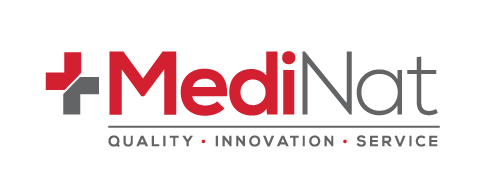
Workplace Drug Testing in Australia: What Employers Need to Know
Share
The Australian Criminal Intelligence Commission (ACIC) has released its latest wastewater report, revealing an increase in consumption of major illicit drugs in Australia. The wastewater report (released in August 2025) reveals that 22.2 tonnes of methylamphetamine, cocaine, heroin and MDMA was consumed from August 2023 to August 2024, this is a 34% increase from the previous year.
In 2019, the National Centre for Education and Training on Addiction (NCETA) reported that 19% of employed Australians had used an illicit drug. This is higher than the general population average (16%) and highlights a critical reality: drug and alcohol misuse is not just a social issue, but a workplace concern.
For employers, this raises important questions about productivity, safety, and compliance—and whether workplace drug testing should be part of their risk management strategy.
Why Workplace Drug Testing Matters
Substance misuse can have wide-ranging impacts on an organisation, including:
-
Reduced productivity – impaired performance, higher absenteeism, and lower output.
-
Increased safety risks – particularly in industries involving machinery, vehicles, or hazardous substances.
-
Workplace culture and morale – colleagues often carry the burden when others underperform due to drug or alcohol use.
In high-risk industries such as mining, transport, aviation, and law enforcement, drug and alcohol testing is already commonplace. Increasingly, employers in other sectors are recognising the value of testing as part of a safe and productive workplace strategy.
Legal Considerations in Australia
While testing can improve safety, employers must also respect employee rights. Key issues include:
1. Consent
Employees cannot be forced to undergo testing unless it is part of a documented workplace policy or employment contract. A clear policy ensures transparency and agreement.
2. Privacy
Drug test results are considered sensitive health information. Collection and use must comply with privacy laws and be:
-
Necessary – justified by the safety risks of the role.
-
Lawful and fair – communicated clearly and applied consistently.
3. Job Relevance
Tests (urine, saliva, breath) detect past use, not impairment. Employers should clearly outline why testing is necessary and what procedures apply if an employee refuses or returns a non-negative result.
4. Policies and Procedures
Employers should implement a drug and alcohol policy that defines:
-
When testing may occur – pre-employment, random, for-cause, or post-incident.
-
Testing methods – compliant with Australian Standards:
-
AS/NZS 4308:2023 (urine)
-
AS/NZS 4760:2019 (oral fluid)
-
-
Consequences of refusal or non-negative results.
-
Support services – counselling or rehabilitation for affected employees.
When Can Testing Be Conducted?
Workplace testing is typically permitted under these circumstances:
-
Pre-employment – as a condition of hiring.
-
Random testing – often used in safety-critical industries.
-
Reasonable suspicion – when an employee shows signs of impairment.
-
Post-incident – after an accident or breach of safety procedures.
Building a Safer Workplace
Workplace drug and alcohol testing is not about punishment—it’s about prevention, safety, and support. Employers have a duty under WHS laws to maintain a safe workplace, and a well-designed testing program helps meet that obligation.
Shop AS/NZS-Compliant Drug & Alcohol Testing Kits
We supply a full range of workplace-ready testing kits:
-
Saliva Drug Test Kits – fast, non-invasive, AS/NZS 4760:2019 compliant.
-
Urine Drug Test Cups – reliable, AS/NZS 4308:2023 compliant.
-
Alcohol Breathalysers – instant, workplace-approved devices.
✔ Trusted by Australian businesses
✔ Bulk and wholesale pricing available
✔ Fast shipping nationwide
Need help setting up workplace testing?
Contact us today for expert advice on policies, training, and choosing the right testing kits for your business.
